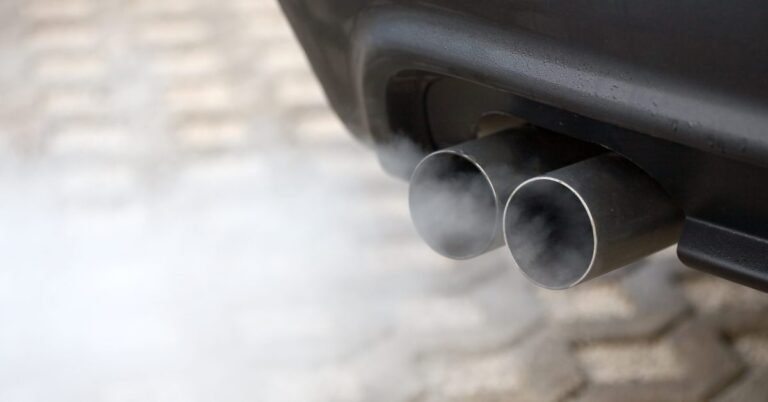EU MEPs voted to adopt tough new rules on emissions from trucking and buses today, seeking to cut total carbon dioxide emissions by 90% by 2040 – but there is a big loophole. While initial planning by the EU Commission sought to effectively classify all ICE trucks and buses as emitting carbon dioxide, the EU Parliament has other ideas.
Under the proposed rules adopted today, medium- and heavy-duty trucks that use biofuels and e-fuels would be exempt from fleet CO2 calculations and, in effect, be considered zero emissions. Buses using biomethane will likewise be exempt. This change was adopted at the request of the most conservative ministers in parliament, including those of the German Christian Democratic Union (CDU). At best, their reasoning is twofold: supporting ministers claim they do not want to take “green” fuel technologies under development off the table, but it is clear that truck manufacturers and trucking interests are the main beneficiaries of such a change.
Biofuels (fuels derived from organic waste products, crops, or biomass decomposition) and e-fuels (synthetically manufactured alternatives to gasoline and diesel) are highly controversial in the context of sustainable transportation. While both in theory come with much smaller carbon footprints than traditionally refined crude oil products (gas and diesel), both also mean vehicles that produce emissions.
E-fuel proponents argue that the production of this type of fuel is sustainable and carbon neutral by design, because it uses carbon capture and renewable energy hydro-electrolysis to synthesize downstream compounds such as e-methanol, e-kerosene, and e-methane. . Biofuels, on the other hand, is a very squishy term – technically, practices with a significant environmental impact such as growing corn or sugarcane can be used on an industrial scale to make biofuels. After all, they are made from plants. But it is not clear what the working definition of biofuels would be under the rules proposed by the EU Parliament or whether sustainability requirements would be included, so it is possible to avoid abstract greenwashing. Biofuels derived from waste biomass of wood chips or spent edible oil at least power someone else’s waste. But again, the final product must be burned, thus producing a certain level of harmful emissions, especially carbon dioxide.
The rules adopted by the EU Parliament today are not binding, and still have to be negotiated with the Councils of EU Member States to obtain final legislation. But there’s clearly a lot of pressure to keep ICE trucks on the road in Europe, and truck manufacturers and many of their big customers are certainly pushing hard on this.
The rules, otherwise, are still far stricter than anything we might see the United States adopt in this century. By 2030, Europe aims to reduce CO2 emissions from its truck and bus fleet by 45%. By 2035, the target rises to 65%. Finally, in 2040, a 90% reduction in fleet CO2 emissions must be achieved.
For more information about the decision, see the reports in Electrive and the EU Parliament press release.
Take an electric
The EU’s targets for reducing fleet emissions in trucking and buses are impressive – on paper. Reducing CO2 by 90% for some of the largest sources of road emissions by 2040 is a very noble goal. But when you cut into e-fuels and biofuels (with the latter, again, being somewhat ambiguous as a category), that mandate starts to lose some of its teeth.
On the one hand, such an exemption would ensure a huge investment in the commercialization of e-fuels and biofuels, an investment in the continued production of vehicles that put carbon dioxide and other harmful compounds directly into our atmosphere. Dress up the math any way you want, a truck that burps e-fuel puts a ton of carbon dioxide back into the air. Biofuels are a more complex topic, with some being much dirtier than others when weighing production and final combustion.
Counter-arguments about the sustainability of electric battery infrastructure growth and the struggle to commercialize true zero-emission fuels like hydrogen should be heard, but nothing about this exception seems to come from rigorous academic investigation into these topics. Trucking interests seem only to be concerned that they will be pressured and held back by actions that are absolutely necessary to preserve our biosphere and restore local and global air quality.
FTC: We use automatic affiliate links to earn income. more.





